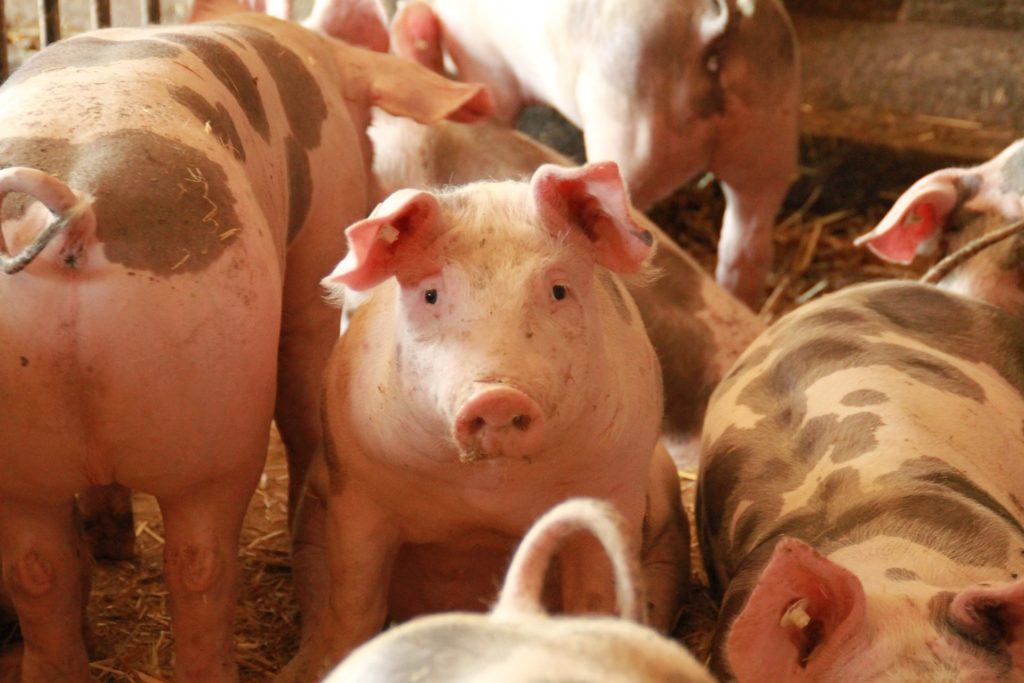
file photo
CEBU CITY, Philippines – The resurgence of African Swine Fever (ASF) in Cebu City has caused worry among local swine raisers and farmers.
Dr. Alice Utlang, head of the Department of Veterinary Medicine and Fisheries (DVMF), reported that seven blood samples from Barangay Bonbon in Cebu City, submitted to the Department of Agriculture Regional Animal Disease Diagnostic Laboratory Region VII (DA-RADDL 7), tested positive for ASF.
On July 16, Utlang noted that seven pigs have died on July 14 and had tested positive for ASF.
She mentioned that they had already alerted the mountain barangays through their Rabies group chat and encouraged them to implement border control measures.
What is African Swine Fever or ASF?
According to the World Organization for Animal Health (WOAH), ASF is a highly contagious viral disease that affects domestic and wild pigs. The disease is characterized by high fever, loss of appetite, and hemorrhages in the skin and internal organs, and often leads to death within a few days.
It poses no threat to human health but has severe economic impacts due to the loss of livestock and trade restrictions imposed to control outbreaks. The virus is resilient and can be spread through direct contact with infected pigs, contaminated feed, or objects such as clothing and vehicles.
READ: Cebu province implements own anti-ASF measures
Utlang urged farmers to practice biosecurity measures and to prevent travelers or anyone not directly involved in their farms from entering.
She also announced that starting Wednesday, July 17, personnel from the Department of Veterinary Medicine and Fisheries and the Cebu City Agriculture Department (CAD) would distribute disinfectants.
“I advise all farmers to practice biosecurity measures and don’t allow viajeros or anybody not directly involved in your farm to enter. Starting tomorrow, DVMF and CAD personnel will distribute disinfectant. Please don’t allow pigs from Bonbon (including piglets) to come in or be accepted or bought from the area. Protect your own barangay and pig farm,” Utlang advised through his personal Facebook account.
Furthermore, Utlang emphasized not allowing pigs, including piglets, from Barangay Bonbon to be brought into or accepted in other areas to prevent the spread of the disease and stressed the need for farmers to protect their barangays and pig farms.
READ: ASF in Cebu: Is it safe to eat pork here? Yes, officials say
In March 2023, ASF was detected in five more areas in Cebu, including the capital, Cebu City.
The Bureau of Animal Industry (BAI) of the Department of Agriculture (DA) announced that the disease had been discovered in Cebu City, Bogo City, Sibonga, Liloan, and Tuburan.
This came barely two weeks after local authorities confirmed the first case of ASF in Cebu, found in a slaughterhouse in Carcar City.
Executive Order (EO) No. 10
In the same year, Cebu Province implemented its own anti-ASF measures. These include stricter monitoring of pig farms, enhanced biosecurity protocols, and the establishment of quarantine zones to prevent the movement of potentially infected animals.
The governor issued Executive Order (EO) No. 10, which not only reiterates the province’s opposition to culling as a preventive measure against ASF but also contains new policies and other biosecurity measures that the national government has not created.
EO No. 10 does away with border controls in regulating the transportation of hogs, pork products, and byproducts.
EO No. 10 also led the creation of a task force dedicated to handling the ASF situation in the province.
The Capitol ordered local officials to form the Barangay African Swine Fever Taskforce.
The group’s task included conducting an inventory of swine raisers, swine populations, and families that raise pigs; profiling backyard swine farms; monitoring the health status of swine populations; monitoring and recommending the isolation of sick pigs from healthy ones; facilitating the tests of pigs showing signs of ASF or classic swine fever; and provide real-time reporting to the Municipal Agricultural Office or City Veterinary Office.
Under the EO, the provincial government is also expected to provide financial assistance to local governments in managing the ASF situation in their territories./ with reports from Morexette Marie Erram